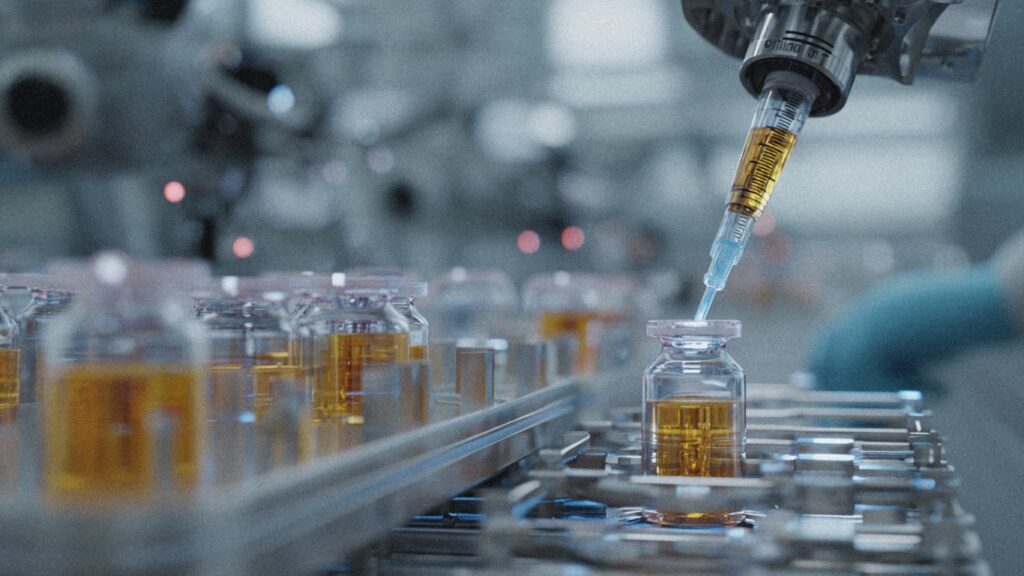Quick Summary
- Election Outcome: The 2024 election could reshape U.S. biotech regulation, with different regulatory priorities depending on the administration.
- Kamala Harris’s Approach: Harris focuses on strengthening biotech through increased funding, regulatory clarity, and workforce development.
- Donald Trump’s Approach: Trump advocates for deregulation and market-driven growth in biotech, with a focus on reducing federal oversight.
- Industry Impact: Potential changes in drug pricing, supply chain policies, and investment flows are anticipated across the biotech sector.
The results of the 2024 U.S. presidential election are expected to have significant implications for the biotech industry. Both Kamala Harris and Donald Trump have expressed distinct approaches to biotech policy, and each administration’s priorities could influence regulatory frameworks, investment dynamics, and the direction of biotech innovation. From drug pricing and regulatory oversight to supply chain security and federal funding, the next administration’s policies will play a crucial role in shaping the U.S. biotech landscape.
Kamala Harris’s Approach to Biotech Regulation
Vice President Kamala Harris has emphasized the need for a robust biotech sector that contributes to national and economic security. Building on the Biden administration’s 2022 Executive Order 14081—which aimed to expand federal investment in biotech and biomanufacturing—Harris’s plans include:
- Increased Federal Investment: Harris supports federal funding to drive research and development in biotechnology, helping address challenges like disease prevention, climate resilience, and food security.
- Regulatory Streamlining: Her approach also includes simplifying regulatory pathways, especially for gene therapies, diagnostics, and novel treatments, to reduce approval timelines while maintaining safety standards.
- Workforce Development: To meet growing demand in the biotech sector, Harris advocates for education and training initiatives that prepare a skilled, diverse workforce.
This policy direction aims to position the U.S. as a global leader in biotechnology by promoting sustainable innovation, supporting ethical standards, and ensuring the safety of biotech applications.
Donald Trump’s Perspective on Biotech Policy
Former President Donald Trump’s approach to biotech regulation centers on deregulation and market-driven growth. Trump’s administration previously cut back on federal oversight across various sectors, and his recent policy proposals suggest a similar direction for biotech, with strategies that include:
- Deregulation: Trump proposes reducing federal oversight to encourage rapid development of biotech products, which may accelerate innovation but could prompt debates around safety and ethical standards.
- Market-Driven Innovation: Under this approach, market forces would dictate the pace and direction of biotech advancements, fostering competition but potentially affecting product quality and consistency.
- Faster Approvals: A hallmark of Trump’s policy is reducing regulatory barriers to market entry, which could enable faster commercialization of therapies but may impact thoroughness in safety evaluations.
While Trump’s stance on deregulation could create opportunities for biotech companies to innovate quickly, it may raise questions around the ethical and long-term impacts of reduced oversight.
Implications for the Biotech Industry
Depending on the election outcome, the biotech industry can expect changes in key areas that affect its operations and growth prospects.
Drug Pricing
Drug pricing reform has been a focus for both candidates, with Harris supporting policies for transparency and affordability and Trump favoring competition-driven pricing models. The outcome could affect revenue models for pharmaceutical companies, impacting strategies for drug development and commercialization.Supply Chain Policies
Geopolitical tensions and potential shifts in supply chain policies may lead to changes in where biotech firms source their materials. Harris has indicated support for domestic production incentives to reduce reliance on foreign suppliers, particularly in critical drug ingredients, while Trump’s stance could involve more market-based solutions.Investment Climate
Venture capital and investment flows into biotech could be influenced by the regulatory environment and predictability established by the administration. Harris’s approach to increased funding and regulatory clarity may attract more consistent investment, while Trump’s deregulatory stance may appeal to companies seeking flexibility in development processes.Federal Funding and Research Priorities
Federal funding under Harris would likely expand, supporting areas like gene therapy, oncology, and regenerative medicine. Trump’s approach may focus on cutting back public spending, encouraging private investment and industry partnerships to advance biotech research and development.Global Competitiveness
Policies aimed at bolstering biotech innovation could strengthen the U.S.’s position as a global leader in biotechnology. Harris’s regulatory clarity and workforce initiatives may support long-term stability, while Trump’s deregulation could stimulate rapid innovation and allow U.S. biotech firms to respond more swiftly to market demands.
Navigating the Future of Biotech Regulation
Biotech stakeholders will need to adapt to the evolving regulatory landscape following the election outcome. Companies are likely to monitor developments in policy areas such as drug pricing, supply chain security, and R&D funding to adjust strategies accordingly. As both candidates have made clear their intent to support the industry, the biotech sector stands at a crossroads, with potential growth paths shaped by either increased federal support or enhanced market-driven innovation.
As the dust settles on the 2024 election, biotech leaders and investors should stay attuned to policy shifts to anticipate and respond to the regulatory and economic changes that lie ahead.
References



